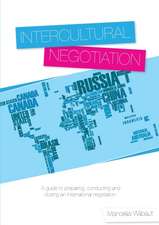Breakdown in Pakistan: How Aid Is Eroding Institutions for Collective Action
Autor Masooda Banoen Limba Engleză Hardback – 24 apr 2012
Thirty percent of foreign development aid is channeled through NGOs or community-based organizations to improve service delivery to the poor, build social capital, and establish democracy in developing nations. However, growing evidence suggests that aid often erodes, rather than promotes, cooperation within developing nations. This book presents a rare, micro level account of the complex decision-making processes that bring individuals together to form collective-action platforms. It then examines why aid often breaks down the very institutions for collective action that it aims to promote.
Breakdown in Pakistan identifies concrete measures to check the erosion of cooperation in foreign aid scenarios. Pakistan is one of the largest recipients of international development aid, and therefore the empirical details presented are particularly relevant for policy. The book's argument is equally applicable to a number of other developing countries, and has important implications for recent discussions within the field of economics.
Breakdown in Pakistan identifies concrete measures to check the erosion of cooperation in foreign aid scenarios. Pakistan is one of the largest recipients of international development aid, and therefore the empirical details presented are particularly relevant for policy. The book's argument is equally applicable to a number of other developing countries, and has important implications for recent discussions within the field of economics.
Preț: 339.95 lei
Nou
Puncte Express: 510
Preț estimativ în valută:
65.06€ • 67.53$ • 54.25£
65.06€ • 67.53$ • 54.25£
Carte tipărită la comandă
Livrare economică 22 martie-05 aprilie
Preluare comenzi: 021 569.72.76
Specificații
ISBN-13: 9780804781329
ISBN-10: 080478132X
Pagini: 240
Dimensiuni: 152 x 229 x 20 mm
Greutate: 0.45 kg
Editura: Stanford University Press
Colecția Stanford Economics and Finance
ISBN-10: 080478132X
Pagini: 240
Dimensiuni: 152 x 229 x 20 mm
Greutate: 0.45 kg
Editura: Stanford University Press
Colecția Stanford Economics and Finance
Recenzii
"Bano successfully brings the voices of those most affected by aid to the fore. By specifying the mechanisms both by which aid is failing and succeeding, she convincingly makes her case."—Jean E. Ensminger, Edie and Lew Wasserman Professor of Social Science at California Institute of Technology
"This book is of high relevance to current policymaking, given the amount of aid now being directed at Pakistan with the stated purpose of improving Pakistan's civil society and governance institutions. Based on strong empirical evidence, this book provides valuable documentation that aid can negatively impact indigenous service institutions in developing countries."—Sujai J. Shivakumar, The National Academies and The Samaritan's Dilemma
Notă biografică
Masooda Bano holds a research fellowship in the Department of International Development and Wolfson College at the University of Oxford. Her research has won awards from the Economic and Social Research Council and the Arts and Humanities Research Council. She has collaborated with development agencies, such as the United Kingdom's Department of International Development and the United Nations.
Descriere
This book draws on rich ethnographic and survey data from Pakistan to present a systematic analysis of why individuals come together to produce collectively desirable goods, and why aid often breaks down traditional institutions for collective action.












